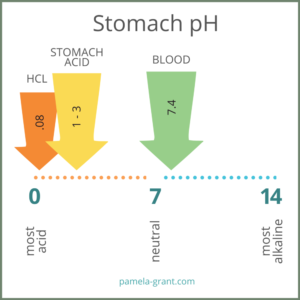Oral Care during Pregnancy
Pregnancy is a life changing experience involving massive changes to the body. However, despite the already large amount of stress a women’s body induces during pregnancy, it remains absolutely essential that good dental health and dental checkups are maintained. It is important that once you are aware that you are pregnant, that you notify your dentist. Extra precautions need to be taken when women are pregnant as they are more susceptible to oral health issues due to a wide range of reasons.
Gum health
Hormonal changes during pregnancy incur noticeable effects in soft tissue after about 2 months of pregnancy. Gums may become inflamed and bleed more easily when flossing or brushing. In some cases, this excess gum bleeding can be a sign of pregnancy gingivitis.
Pregnancy gingivitis is a disease responsible for much of the gum inflammation caused during pregnancy affecting around 60% of women during pregnancy. These infected gums encourage the settling of bacteria, further increasing risk of gum disease. To avoid or manage pregnancy gingivitis, one can continue to brush and floss regularly, drink water frequently and even try out a sugar-free gum containing xylitol (a chemical that restricts bacterial growth).
X-Rays
It’s a common misconception that during pregnancy dental x-rays can be extremely harmful towards the fetus and should be avoided, however this is unhelpful and false.
The amount of radiation produced by a typical dental x-ray is very low, with radiations levels just above that induced by eating a banana. Overall, all dental X-rays are okay for pregnant women and have an extremely low chance of affecting the fetus. Ultimately, the risk of undiagnosed issues due to not receiving a necessary X-ray is far greater than the potential risk a dental X-ray will have on the fetus or the mother.
Vomiting
Something that is often overlooked is the effect that vomiting has on oral health. Many women experience vomiting as a frequent symptom during pregnancy making it something that needs to be accounted for. With a pH of 2.0, vomit is highly acidic. These high levels of acidity are due to the stomach acid contained in the vomit. The stomach is lined with thick mucus protecting it from stomach acid, however in the mouth; the high acidity of vomit is erosive.
 The stomach acid in vomit is able to erode and soften strong materials, such as bone, not to mention soft tissue such as your gums. The softening of the enamel can increase susceptibility to the more common bacterial infections and enamel erosion can lead to increased sensitivity. Both of these can eventually lead to the requirement of extractions, restorative work or other procedures.
The stomach acid in vomit is able to erode and soften strong materials, such as bone, not to mention soft tissue such as your gums. The softening of the enamel can increase susceptibility to the more common bacterial infections and enamel erosion can lead to increased sensitivity. Both of these can eventually lead to the requirement of extractions, restorative work or other procedures.
To minimise the effect that vomiting has on your teeth, there are a few simple things you can remember to do.
- After vomiting, immediately rinse with water as this reduces acidity in your mouth
- Avoid brushing your teeth directly after as this can actually be counterproductive as acid may only be further penetrated into the enamel
- Brush with a fluoride-based tooth paste (which increasing tooth resistance to acids)
- Drink water frequently
- Book dental check-ups to monitor and help stay on top of dental health
Change in Diet
Another experience many women undergoing pregnancy share is a change in diet or new ‘food cravings’ due to hormonal changes. Pregnancy limits the body’s ability to absorb the hormone leptin (a hormone which monitors hunger), creating the sometimes quite random changes in appetite. Many women have found that their tendency to find comfort in junk food increases, with common reports of cravings for ice cream, chocolate and potato chips.

The increase of sugary foods into ones diet is never a good thing; especially for pregnant women whose bodies are already undergoing massive changes leaving them with a reduced immune system. The increase of sugar will increase risk of dental decay, creating further issues.
Another common yet quite obscure food craving when pregnant is ice. Many women find that they crave munching away on ice chips or ice cubes. As tempting as it may be, it is also recommended that this be avoided. Ice is just as hard as tooth enamel, meaning when ice is munched on not only is the ice damaged, but also the teeth. Furthermore, exposing your teeth to the cold temperatures of ice can also increase sensitivity due to damage caused to the enamel.
Summary:
- Notify your dentist when as soon as you discover you’re pregnant
- X-rays are not harmful during pregnancy
- Pregnancy hormones can increase risk of gum related issues
- Manage unhelpful food cravings such as sugary foods or ice
- Know the right precautions to take when vomiting
References:
Improve Your Oral Health and Improve Your Baby
Eating Disorders and Dental Health
Effects of Ice Chewing on Teeth
Dental X-Rays – the Facts You Need to Know

